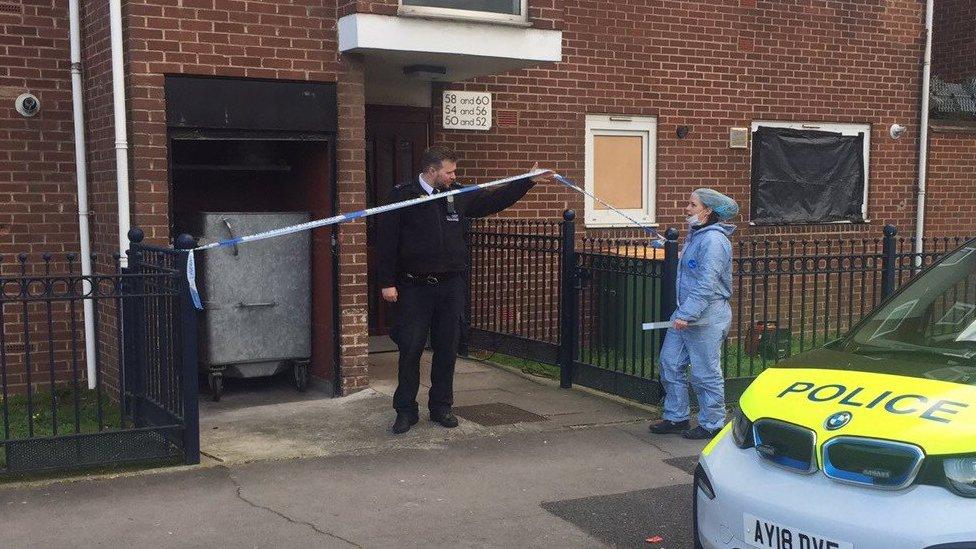Grief and finding my voice after Mum's murder
- Published
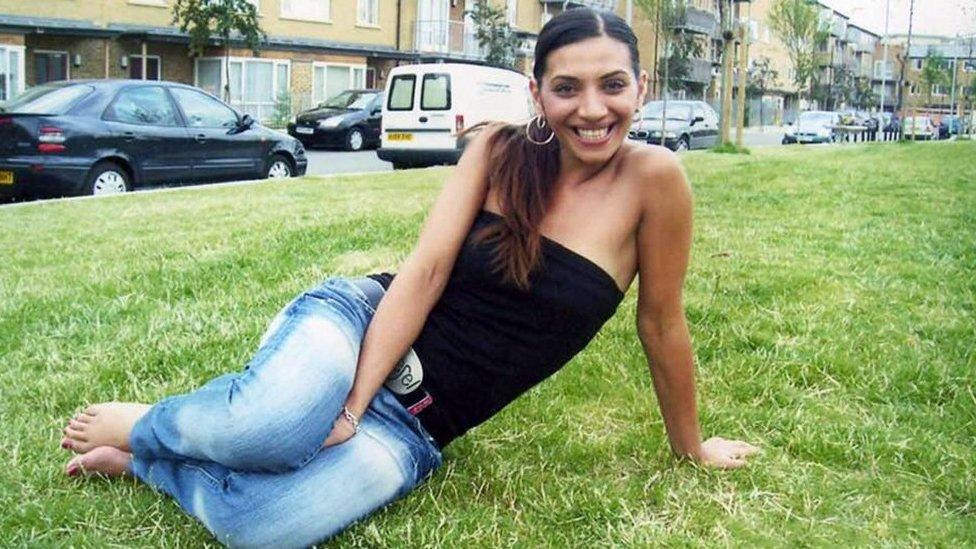
Mihrican Mustafa, known as Jan, died when her daughter was just 11
Speaking at a vigil to remember her murdered mother, "it feels like I'm being heard for once," a teenager says.
"I can't say I'm completely fine because that's going to be a lie."
The 15-year-old is the daughter of Mihrican Mustafa, known as Jan, who was murdered in London in 2018. Her body was later found in her killer's freezer next to another of his victims.
At her family's request, the teenager is remaining anonymous but they wanted BBC Newsbeat to tell her story.
Jan's loved ones are determined for her to leave a positive legacy.
On Sunday, they held the first of what will be an annual event in Newham, where bereaved families whose relatives have been murdered or killed can celebrate their lives.
Jan's daughter is wearing a pink hoodie with a picture of her mum's smiling face on it as for the first time she shares the experience of her tragic loss.
Even though she was only 11 when her mum was murdered, the teenager says she has "so many memories" of her.
"We used to dance in our room, we used to dress up and we'd watch horror movies. That was our thing," she says.
"No one can take that away from us."
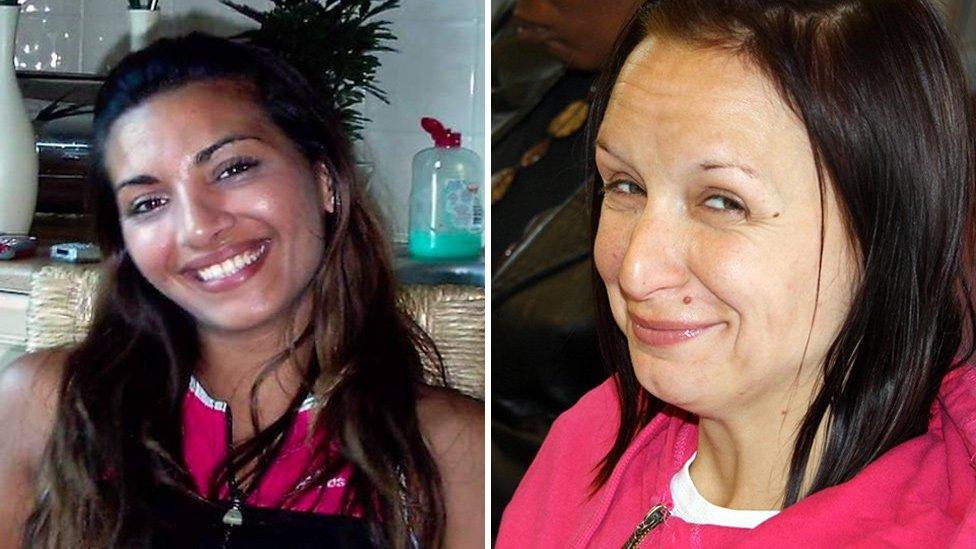
Jan met her killer two years after he had murdered Henriett Szucs, pictured right
Jan was just 38 when she died. She was vulnerable and had fallen on hard times when she met Zahid Younis, a sex offender with a long history of violence against women.
They lived near to each other and Jan could not have known when she spent time at his flat that she was just metres away from the body of Henriett Szucs - whose body had been stored in a hidden freezer since 2016.
When police made the discovery in April 2019, Jan's body was found alongside Henriett's.
"The way she died was really disturbing," Jan's daughter tells Newsbeat. "I felt sick, physically sick."
Four years on, she still goes through big waves of emotion.
"One second I'll be like, 'at least she's in a better place', but then you see other mums and daughters and it just makes me think, wow, I've never had that," she says.
"I do get a little bit angry because she wasn't there," she adds. "But it's not her fault and it's not my fault."
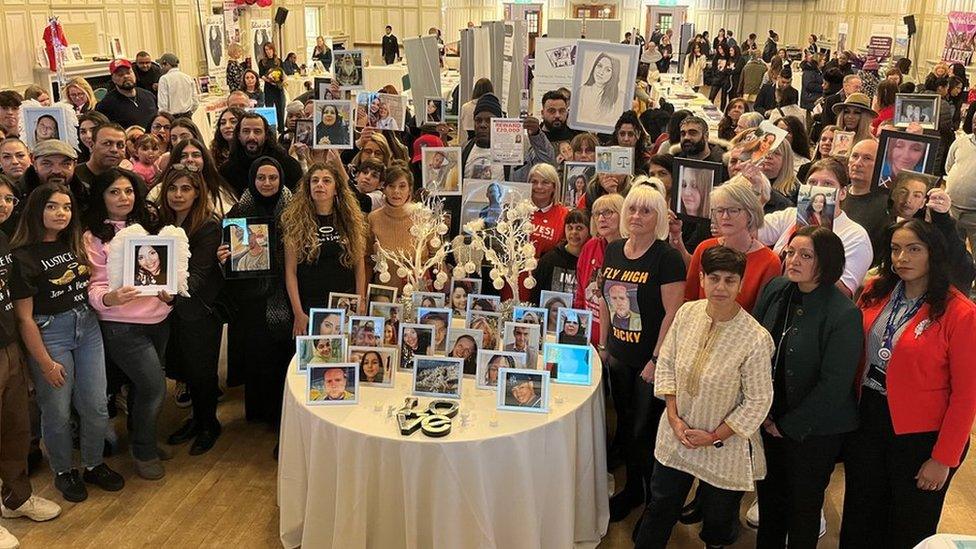
The event - at Newham Town Hall - will now become an annual event
As she leaves the stage after giving a speech to the crowd of more than 100 people, the teenager is stopped and embraced by family after family, all of whom have suffered similar losses.
"It's been very comforting, because there are so many people around me that have been through similar things," she says.
"It gives me strength. We're all still fighting together and doing our best."
By speaking out for the first time, the teenager hopes to give a voice to "the children that can't speak up" about their trauma.
Offering her own advice, she says "don't blame yourself".
"Take your time [to heal] and if your room's a mess, let it be a mess."
Her own recovery involves spending lots of time in her room listening to music but now she's turning her attention to her future.
"I really want to be a psychologist," she says. "I love helping people.
"I've experienced what I've experienced and I'll know how to talk to children properly and how to really help them."
If you've been affected by the issues raised in this article, help and support is available via BBC Action Line.


Follow Newsbeat on Twitter, external and YouTube, external.
Listen to Newsbeat live at 12:45 and 17:45 weekdays - or listen back here.
Related topics
- Published5 December 2022
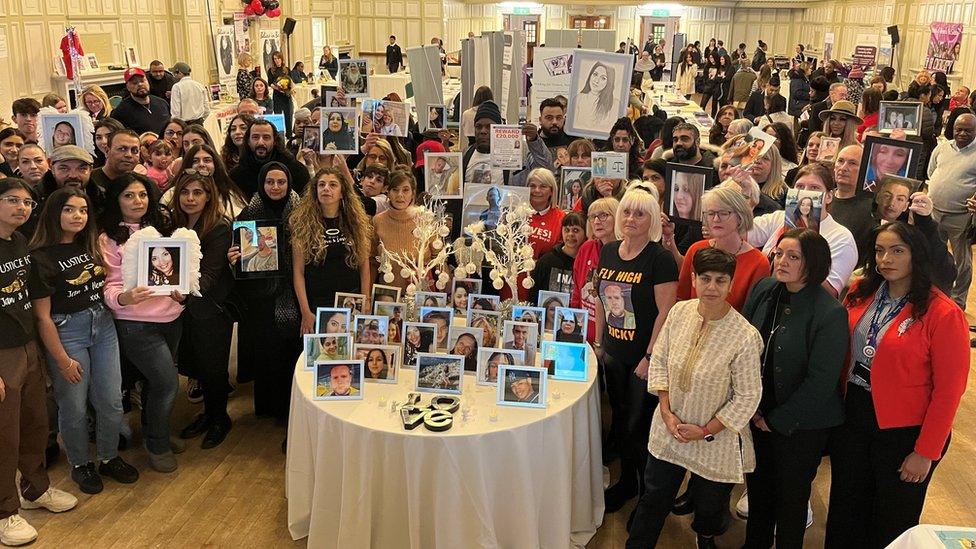
- Published24 June 2021
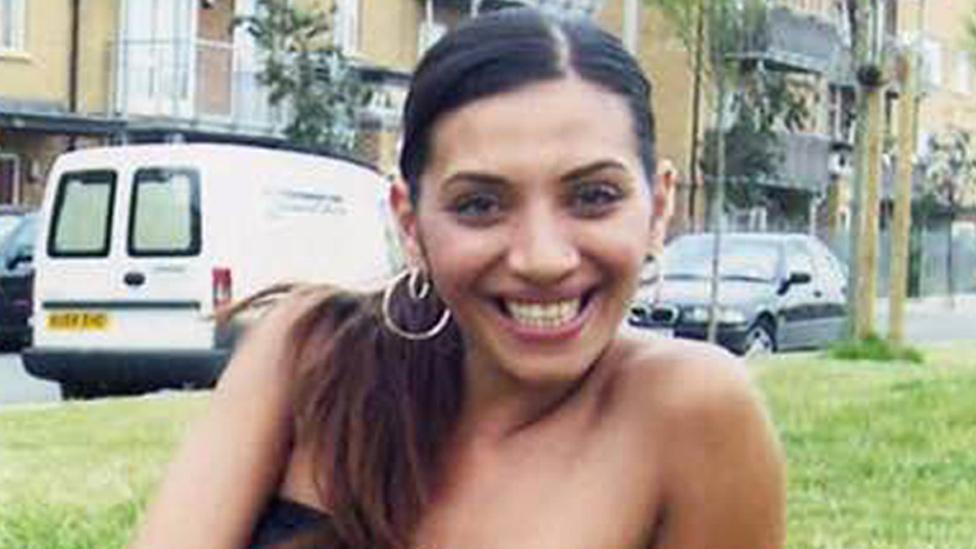
- Published3 September 2020
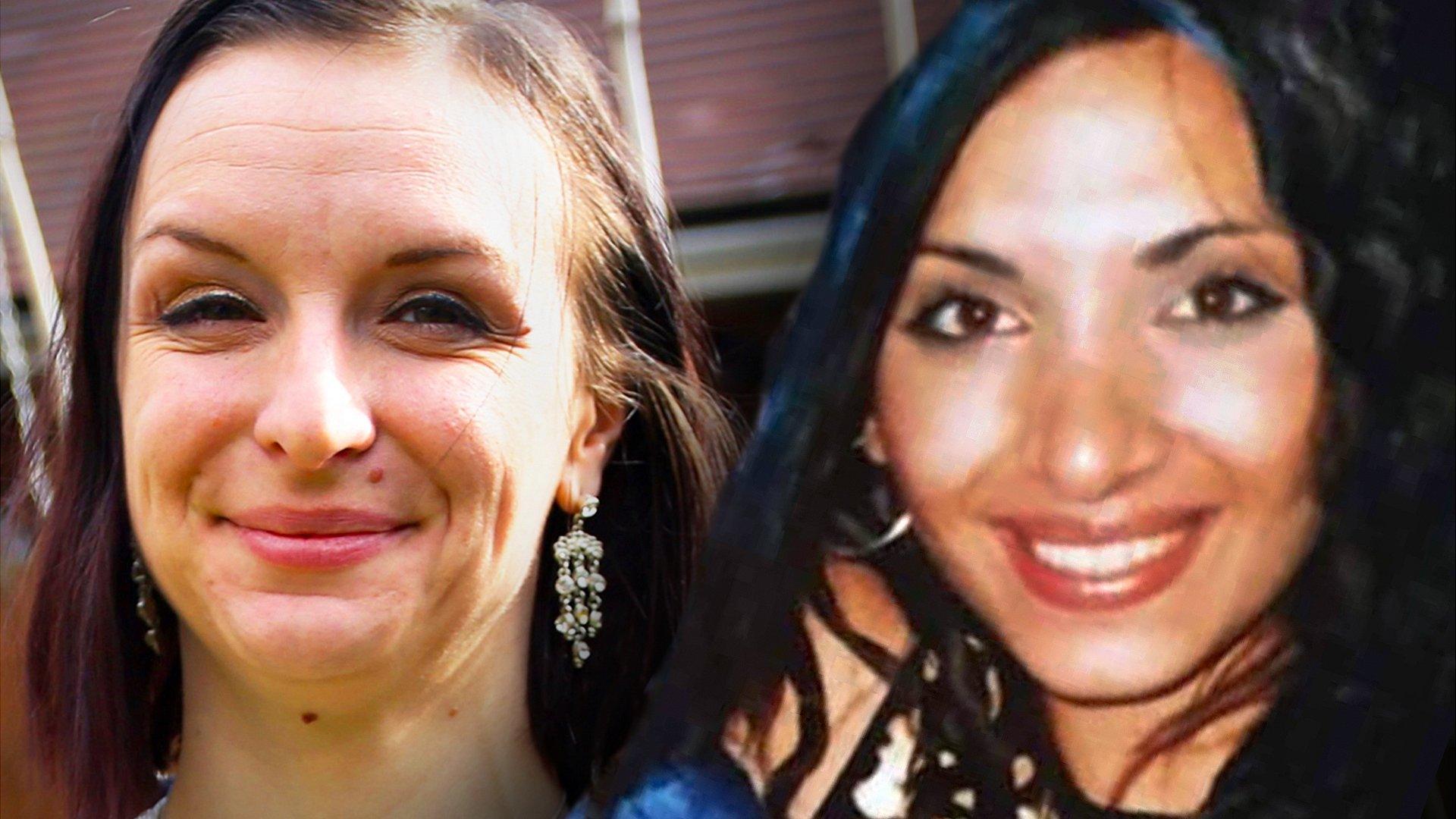
- Published3 September 2020
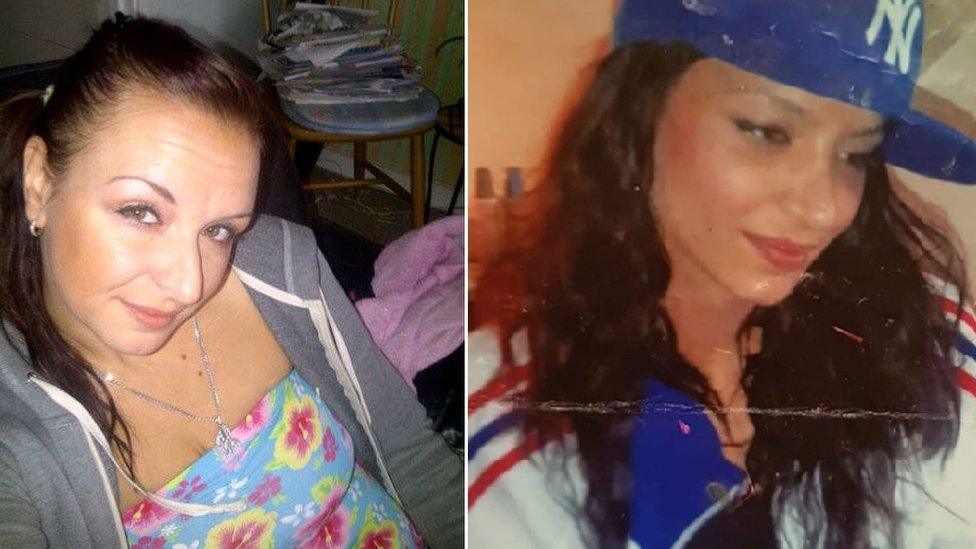
- Published29 July 2020
